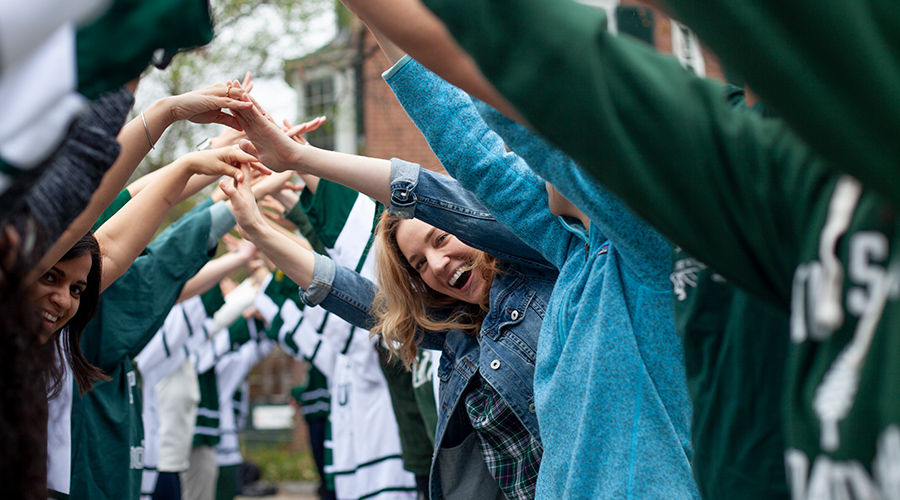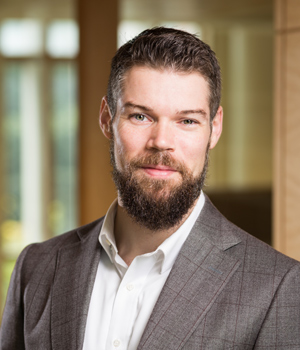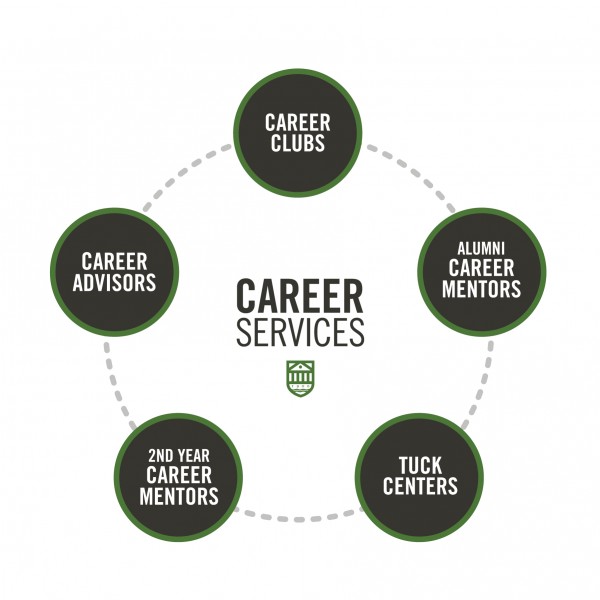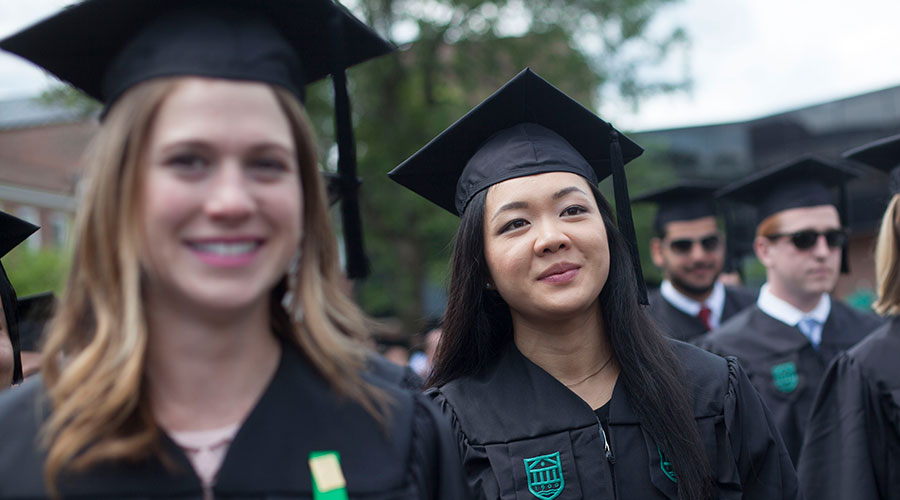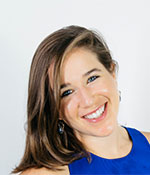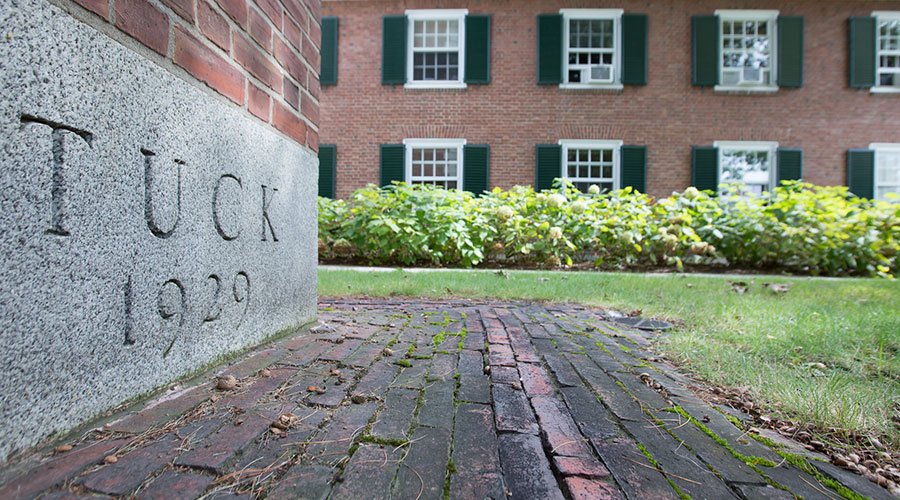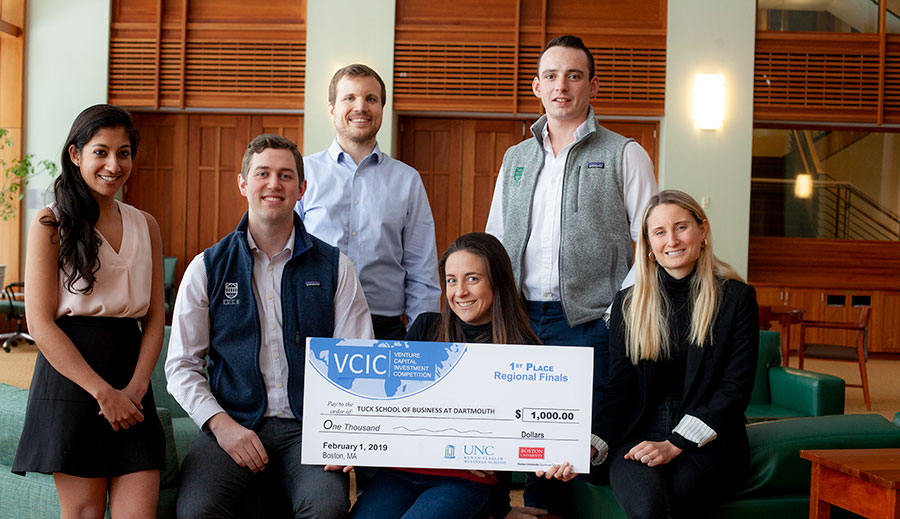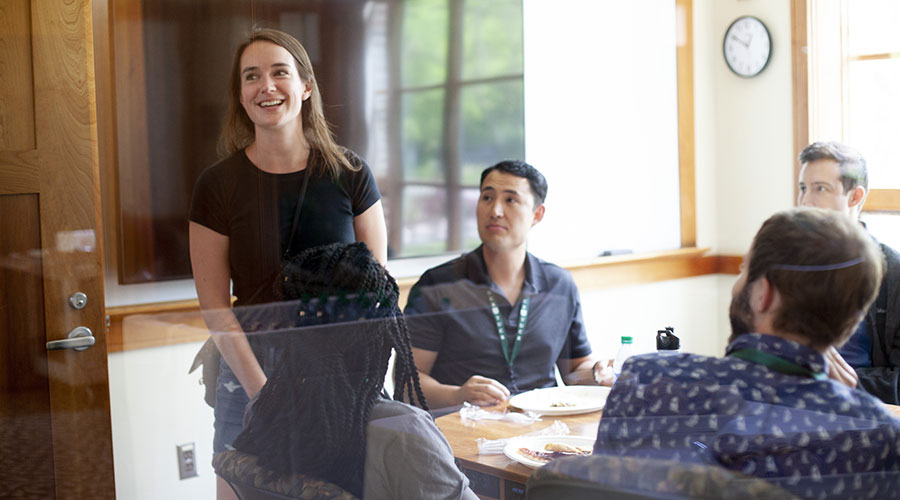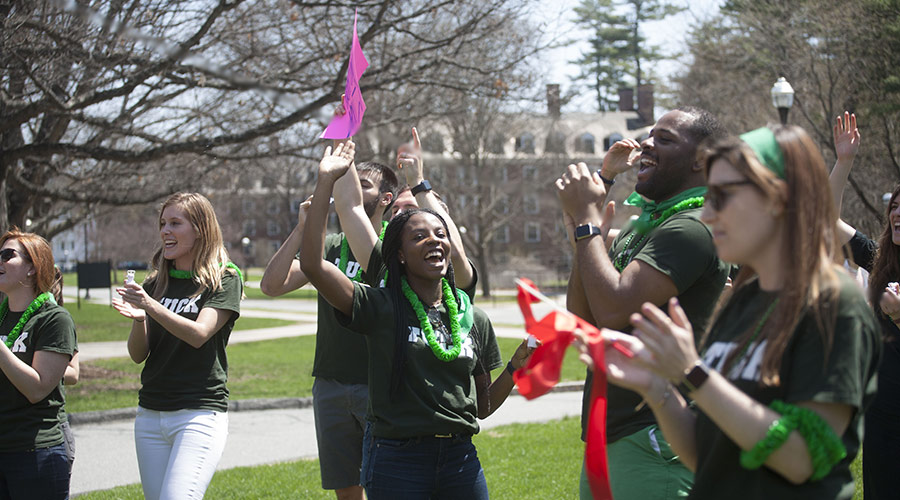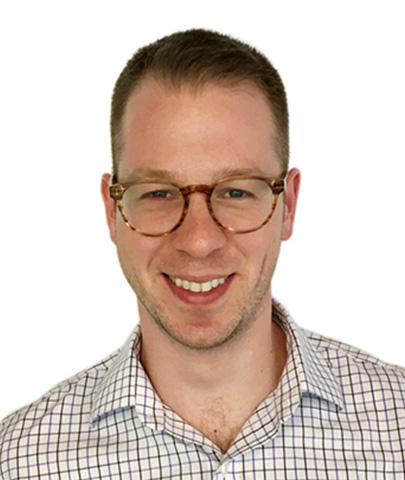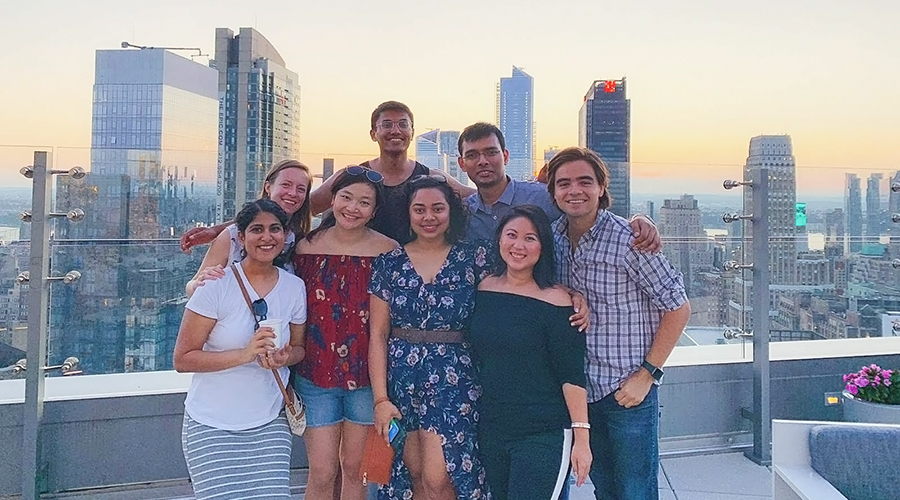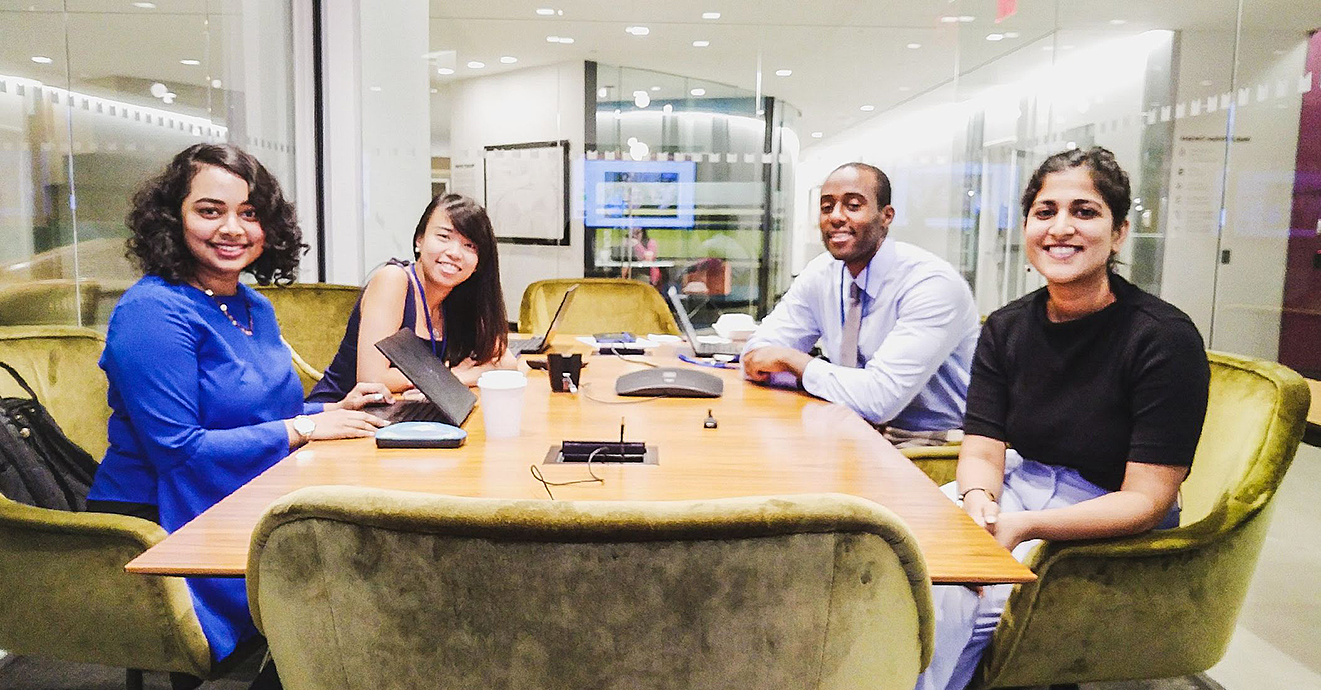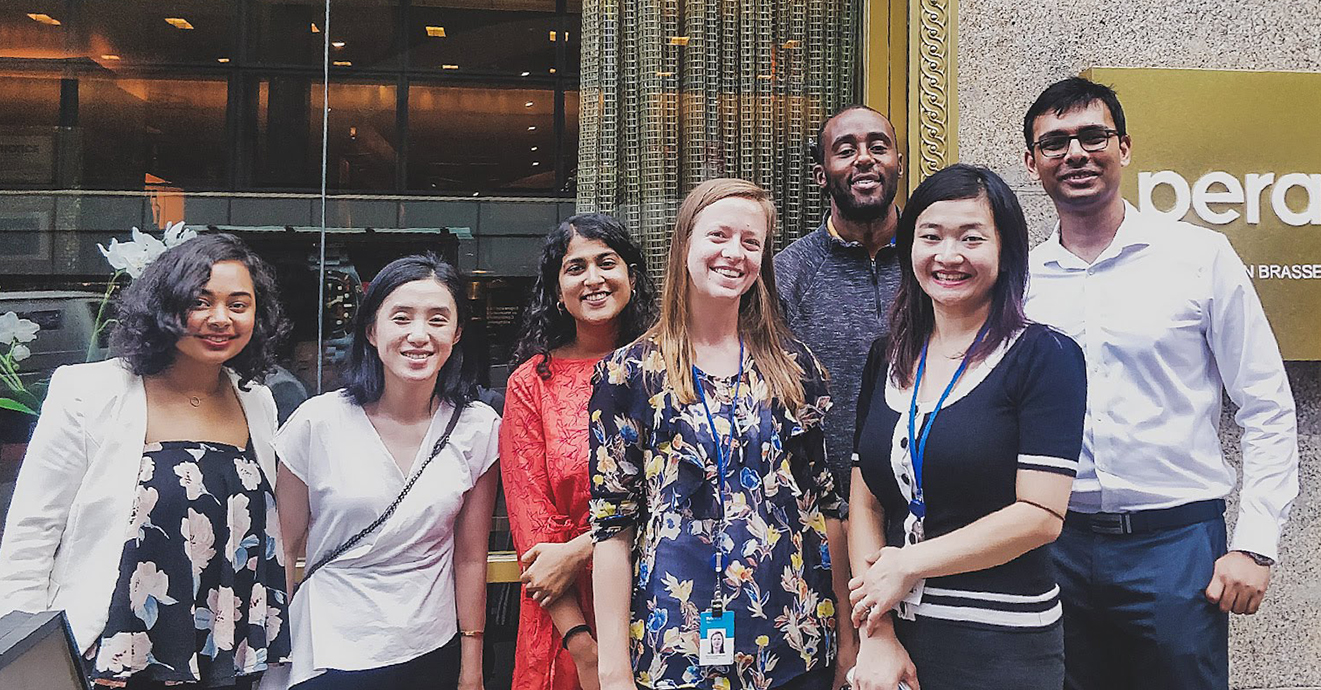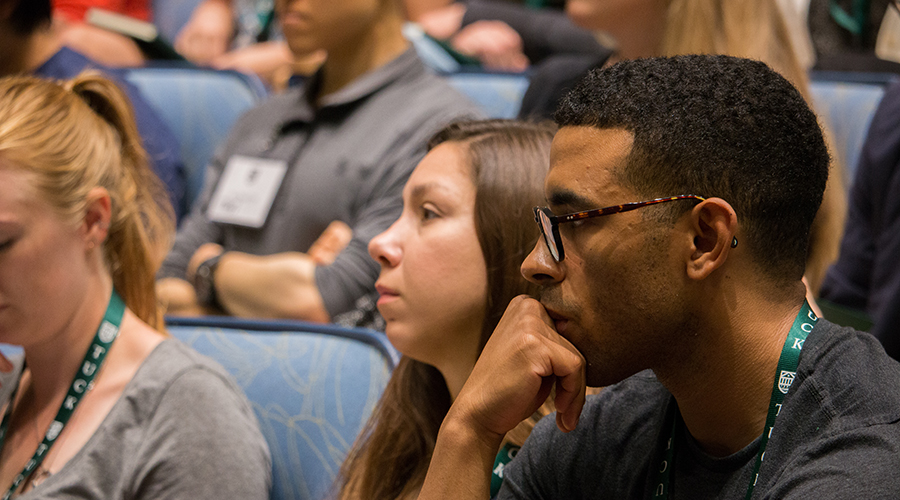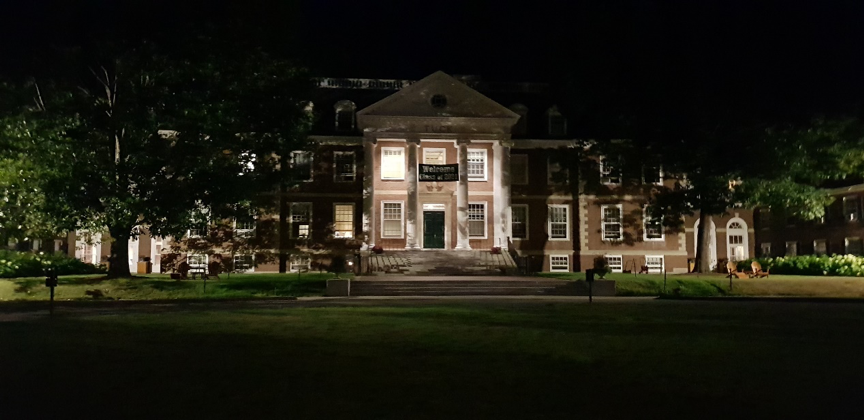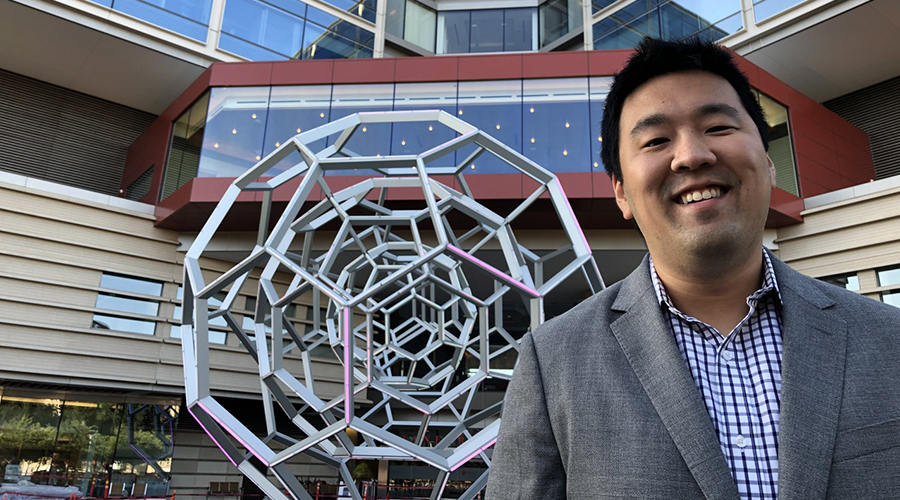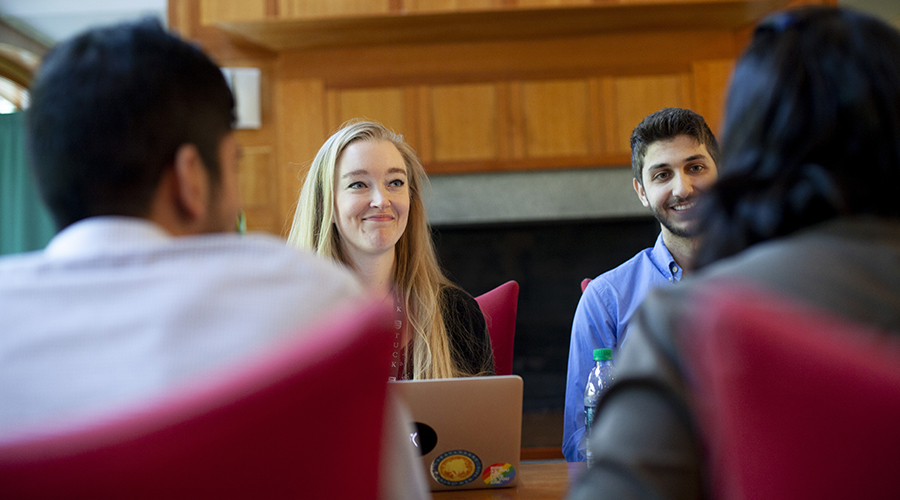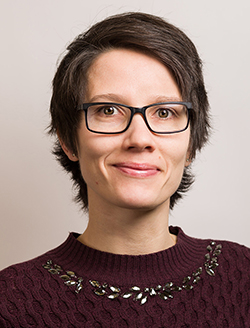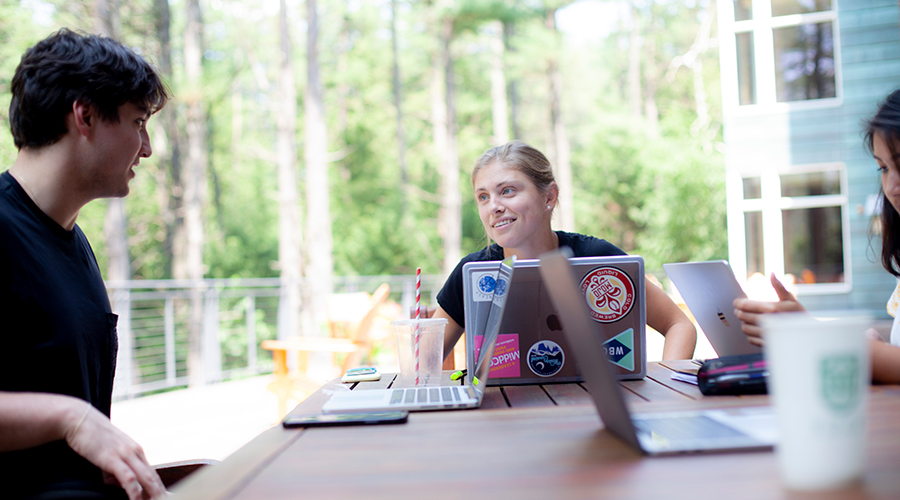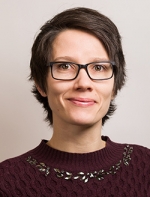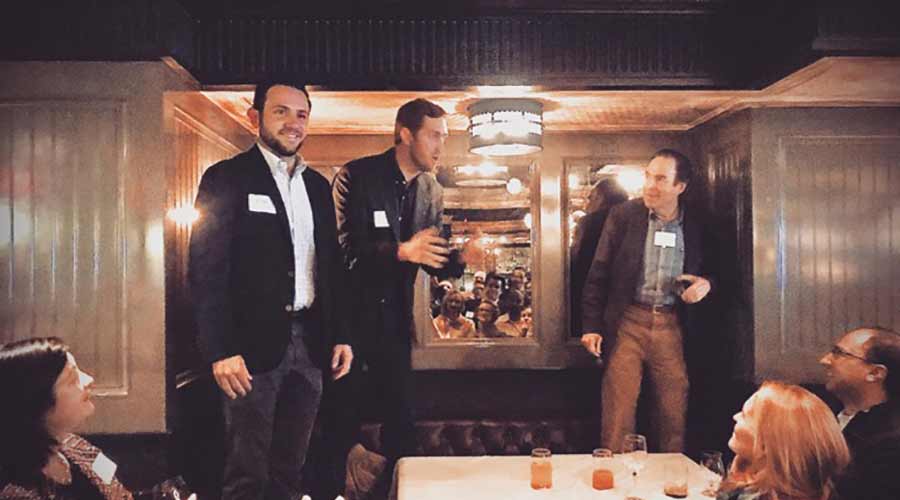Events & Promotions
|
|

GMAT Club Daily Prep
Thank you for using the timer - this advanced tool can estimate your performance and suggest more practice questions. We have subscribed you to Daily Prep Questions via email.
Customized
for You
Track
Your Progress
Practice
Pays
Not interested in getting valuable practice questions and articles delivered to your email? No problem, unsubscribe here.
- Nov 20
07:30 AM PST
-08:30 AM PST
Learn what truly sets the UC Riverside MBA apart and how it helps in your professional growth - Nov 20
10:00 AM EST
-10:30 AM EST
If you’re applying to Columbia, NYU Stern, or Yale SOM, you need more than strong stats. Each school defines “leadership” differently, and your essays must reflect that. Join Sia Admissions founder, Susan Berishaj on November 20th - Nov 20
09:00 PM IST
-10:00 PM IST
Join our free expert-led Essay Workshops to discover how to choose impactful stories, highlight your core values, and align your background with each school’s distinct culture, making every word truly count. - Nov 21
08:30 AM EST
-09:15 AM EST
Get the inside scoop on what makes Emory’s Goizueta Business School great, learn how you can present a strong MBA application, and connect with an Admissions Director to get your questions answered. - Nov 21
09:30 PM IST
-10:30 PM IST
Learn how to craft powerful, authentic essays by mastering the 3 “WHYs” every top MBA program looks for: Why MBA, Why Now, and Why This School. - Nov 24
08:00 PM PST
-09:00 PM PST
Inquire for a free profile evaluation and guarantee statement for possible admits and scholarships!
Kudos
Bookmarks
| FROM Tuck Admissions Blog: Peru’s Andean Miracle: Inside the Peru GIX |
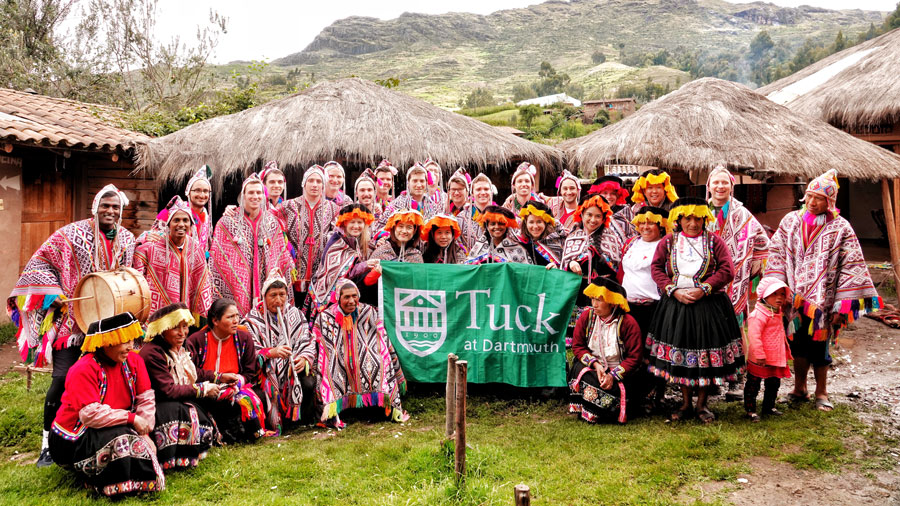 By Keerthi Vallabhapurapu T’20 After a long, arduous winter in Hanover filled with the pressures of recruitment, 23 of us, along with Richard McNulty, executive director of leadership development, and Dartmouth government professor John Carey stepped into Peru. The theme of the GIX was “Peru's Andean Miracle: Lessons at the Intersection of the Private Sector and Public Policy.” The promise was of wisdom, wonder, fun, and some much-required vitamin D. Peru did not disappoint on any account. The Peru 2019 GIX kicked off with a walking tour of its sprawling capital: Lima. We learned about the Spanish Inquisition of Peru, walked through the local markets, and essentially saw the city through the eyes of local tour guides—an experience worth the sunburn mark I carry to date. 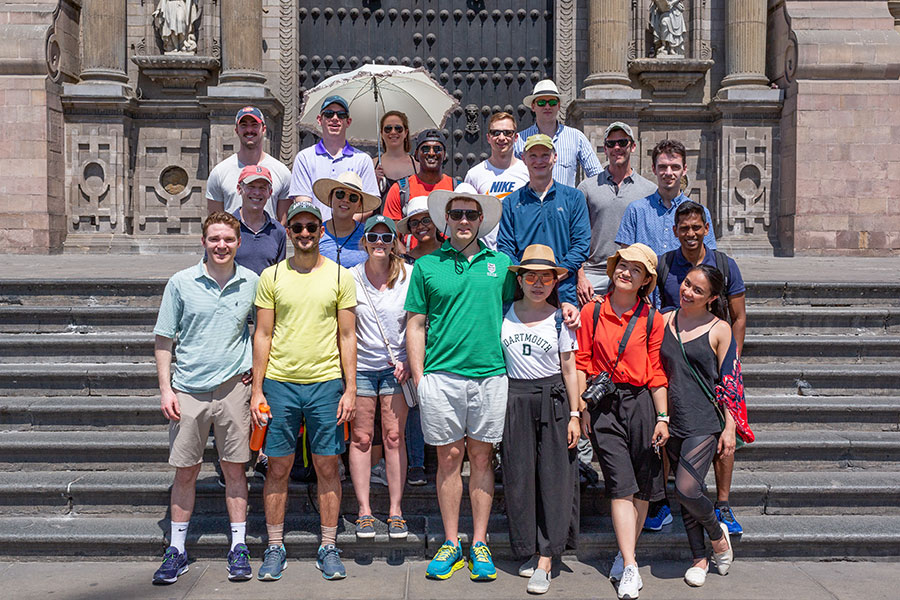 Tuck students during the walking tour in Lima The same evening, we battled through Lima’s traffic to visit Mr. Hernando de Soto, a world-renowned economist. It was an enlightening conversation that helped put in perspective all the extralegal settlements we came across earlier in the day. We wrapped up the day, just like the days to come, by experiencing the culinary delights that Peru so proudly offers, and with an abundance of pisco sours. 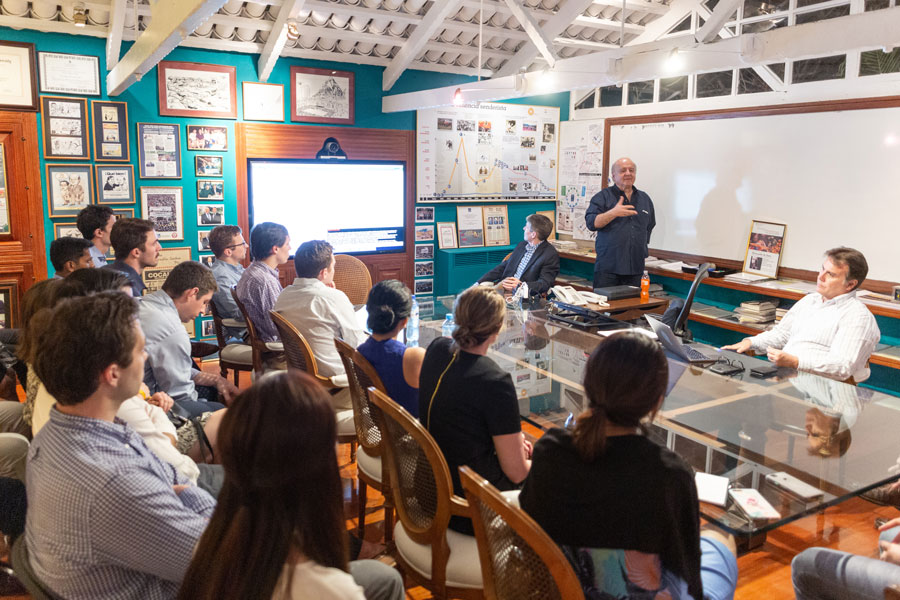 Tuck students with Mr. De Soto The next day started bright and early with a visit to Intercorp, a Peruvian conglomerate that soared to prominence in the capable hands of Carlos Rodriguez-Pastor (aka CRP) T’88. An extremely charismatic person, CRP is an embodiment of Tuck’s core value of wise leadership. Spending a day listening to the top leadership at Intercorp, including the former prime minister of Peru Fernando Zavala, left us in awe of Intercrop’s vision and potential impact on the emerging middle class in Peru. That night, we got the chance to spend time with a number of Tuck alumni in a historically significant building: Club Nacional. 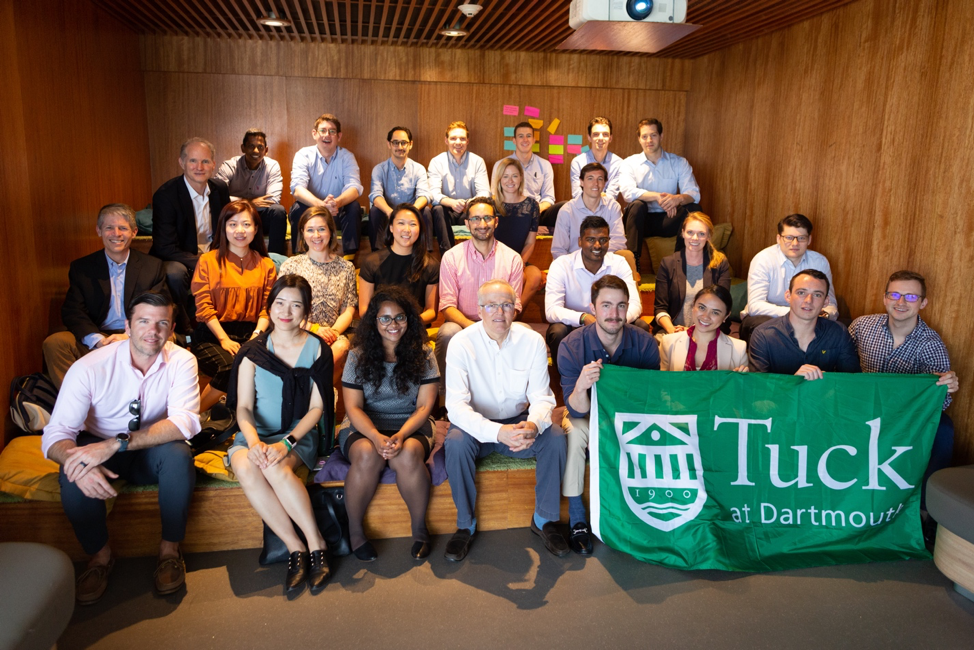 Tuck students with CRP at Intercorp The next day, we had the opportunity to visit one of the Innova schools—an Intercorp initiative—and were amazed to see how Innova succeeded in standardizing quality education in Peru using a low-cost model that benefits the middle class and more importantly makes the business sustainable and scalable. Highlight of the trip was meeting with the Peru Champs. Peru Champs, spearheaded by Alberto de Cardenas T’04, provides need-based scholarships for students to attend Innova Schools. Listening to extremely talented kids talk about how they battled unfathomable difficulties to pursue their passions in hope for a better life for themselves and the people around them was heartwarming and inspiring. Later in the day, we visited Intercorp’s innovation center—La Victoria Lab—and had an interesting conversation about Aviva, which is another initiative about to be launched by Intercorp to make quality health care available to the Peruvian middle class. We ended the day with an engaging design thinking workshop aimed at providing innovative solutions to Kani, a startup that helps native Peruvian artisans and craftsmen find a market to sell their beautiful product. With that we bid farewell to the incredible view of pacific to headed to the highlands of Cusco. 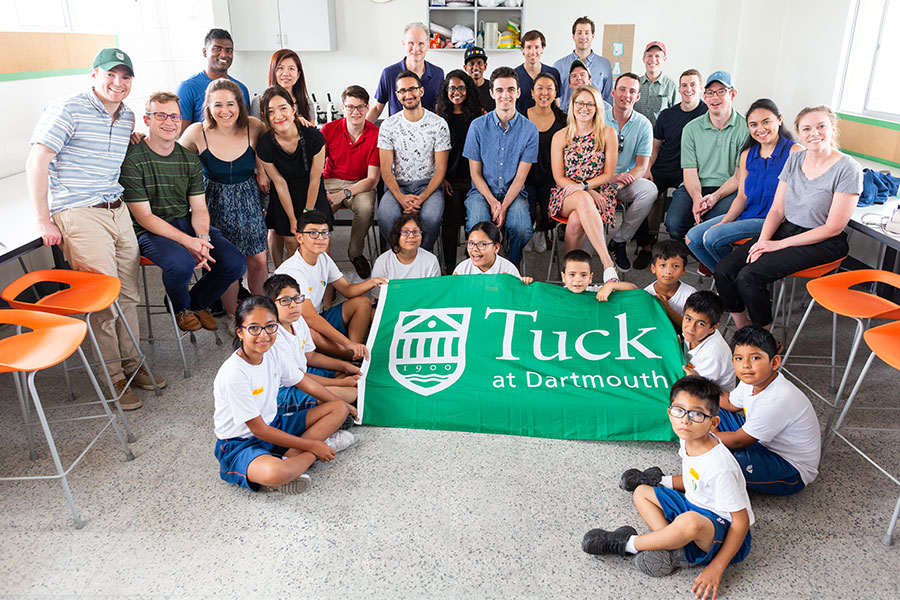 Peru GIXers with Peru Champs at Innova Schools, Lima The five days we spent in the highlands were travel heavy but truly magical. Accompanied by extremely knowledgeable and witty tour guides, Efrain and Miguel, we got comfortable in our bus seats where we spent majority of our time for the next few days. We started off by visiting stunning Moray and Maras Incan ruins. The beauty and the architectural precision of these ruins left us in wonder despite the persistent rain. The next day we visited the Amaru village, a community of native Quechuan speakers. We adorned traditional costumes and feasted on the delectable lunch prepared using traditional methods. It was then time for what many of us came to Peru for: Machu Picchu. A train journey away from Cusco, we arrived at the nearest town to Machu Picchu, Aguas Calientes the night before. We started our journey to Machu Picchu at the crack of dawn, after getting a walking tour of Incan ruins around Machu Picchu, it was time to hike up Huayna Pichhu. This intimidating hike in the rain with sheer drops and slippery rocks offered the promise of a breathtaking view of Machu Picchu and it was totally worth it. With the view of a world wonder filling up our hearts, we headed back to Cusco.  Tuck Students at Machu Picchu In the last couple of days at Cusco, we visited a nonprofit school supported by our wonderful tour guide, Efrain. It was both heartwarming and heartbreaking to serve lunch to the most underprivileged girl children in Cusco. We then had the rest of the day to process all the wonderful and contrasting experiences we had throughout the trip. The fact that more than half of us broke down during our final refection is a testament to how impactful the trip was. It not only engaged our minds but also captured our hearts. It helped us appreciate our position of privilege and the opportunities that ensured. It inspired us leverage this privilege to be thoughtful and compassionate in our endeavors at and beyond Tuck. Sree Keerthi Vallabhapurapu is an MBA candidate at the Tuck School of Business, Class of 2020. She was formerly a principal consultant at Orbees Business Solutions in Hyderabad, India as well as an electronics and communications engineer at Osmania University in Hyderabad, India. |
This Blog post was imported into the forum automatically. We hope you found it helpful. Please use the Kudos button if you did, or please PM/DM me if you found it disruptive and I will take care of it.
-BB
Kudos
Bookmarks
| FROM Tuck Admissions Blog: Tuck Admissions Insights: Insider Tips from Tuck, Michigan Ross, and Berkley Haas |
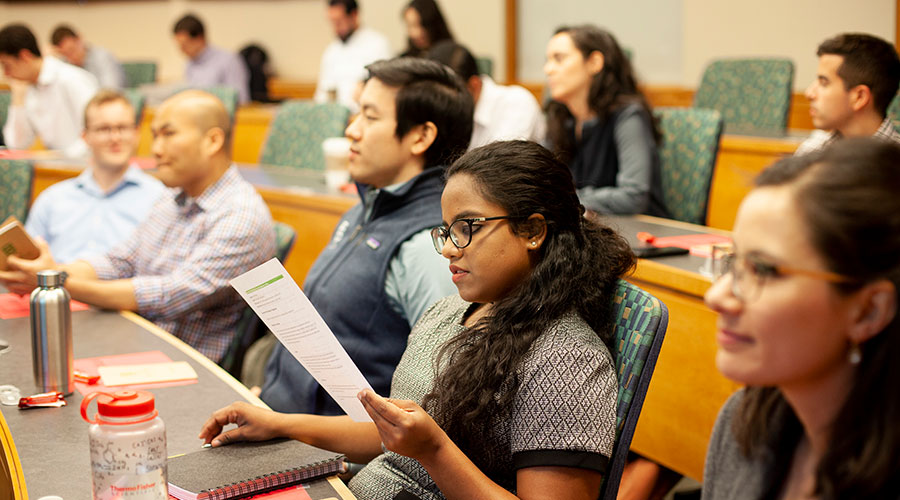 By Tuck Admissions In the second annual MBA Summit Panel hosted by the Michigan Ross School of Business, Executive Director of Admissions Luke Anthony Peña and fellow admissions directors from Michigan Ross and Berkley Haas discuss the MBA admissions process and provide advice to prospective MBA applicants. Moderated by John Byrne, editor-in-chief of Poets & Quants, the rich one-hour discussion dove into topics including the GMAT vs. the GRE, how to stand out as an applicant, and the ROI of an MBA. When asked about evaluating the applications of those looking to attend an MBA program in order to successfully switch careers, Peña said: “We look for awareness. To us awareness is a balance of ambition and reality. So we want candidates to be ambitious, we want candidates not to come to the MBA just to do the exact same thing that they were doing before at the same level, in the same role. I had a mentor who used to tell me nobody changes the world through low ambition. So we do want people who aspire to great things. Yet what needs to come with that is a sense of reality. What does the realistic path actually look like? If you are looking for an enormous jump in your career, we would like to see that you know this is an enormous jump and that you understand it may take several steps to get there. You need to have that self-awareness.” Peña also shared his perspective on an admissions buzz word that is used often: “fit.” “Fit is such an interesting concept and an interesting word. I’ll never forget sitting with a student in Shanghai and he said, ‘Tell me about why I should pursue an MBA and don’t use the words fit, holistic or authentic because I’ve heard these words over and over and over.’ It’s true, we talk about fit a lot. I do think that fit is a concept that does in some ways invoke the idea of being completely in your comfort zone, and I think that’s not the greatest value of the MBA experience. There is some value in feeling like you do have an ability to feel safe and secure but at the same time are pushed beyond the boundaries of what you’ve already seen and what you’ve experienced. And when you can do that, and when you can balance that with support, that’s a powerful place to grow.” Watch the full interview below or read the transcript here. |
This Blog post was imported into the forum automatically. We hope you found it helpful. Please use the Kudos button if you did, or please PM/DM me if you found it disruptive and I will take care of it.
-BB
Kudos
Bookmarks
| FROM Tuck Admissions Blog: Tuck Admissions Insights: Insider Tips from Tuck, Michigan Ross, and Berkley Haas |
 By Tuck Admissions In the second annual MBA Summit Panel hosted by the Michigan Ross School of Business, Executive Director of Admissions Luke Anthony Peña and fellow admissions directors from Michigan Ross and Berkley Haas discuss the MBA admissions process and provide advice to prospective MBA applicants. Moderated by John Byrne, editor-in-chief of Poets & Quants, the rich one-hour discussion dove into topics including the GMAT vs. the GRE, how to stand out as an applicant, and the ROI of an MBA. When asked about evaluating the applications of those looking to attend an MBA program in order to successfully switch careers, Peña said: “We look for awareness. To us awareness is a balance of ambition and reality. So we want candidates to be ambitious, we want candidates not to come to the MBA just to do the exact same thing that they were doing before at the same level, in the same role. I had a mentor who used to tell me nobody changes the world through low ambition. So we do want people who aspire to great things. Yet what needs to come with that is a sense of reality. What does the realistic path actually look like? If you are looking for an enormous jump in your career, we would like to see that you know this is an enormous jump and that you understand it may take several steps to get there. You need to have that self-awareness.” Peña also shared his perspective on an admissions buzz word that is used often: “fit.” “Fit is such an interesting concept and an interesting word. I’ll never forget sitting with a student in Shanghai and he said, ‘Tell me about why I should pursue an MBA and don’t use the words fit, holistic or authentic because I’ve heard these words over and over and over.’ It’s true, we talk about fit a lot. I do think that fit is a concept that does in some ways invoke the idea of being completely in your comfort zone, and I think that’s not the greatest value of the MBA experience. There is some value in feeling like you do have an ability to feel safe and secure but at the same time are pushed beyond the boundaries of what you’ve already seen and what you’ve experienced. And when you can do that, and when you can balance that with support, that’s a powerful place to grow.” Watch the full interview below or read the transcript here. |
This Blog post was imported into the forum automatically. We hope you found it helpful. Please use the Kudos button if you did, or please PM/DM me if you found it disruptive and I will take care of it.
-BB






